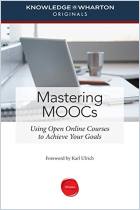Únase a getAbstract para acceder al resumen.

Únase a getAbstract para acceder al resumen.
Curtis J. Bonk, Mimi M. Lee, Thomas C. Reeves and Thomas H. Reynolds (Ed.)
MOOCs and Open Education Around the World
Routledge, 2015
¿De qué se trata?
Have massive open online courses (MOOCs) revolutionized education, as some claim? Not yet – but they might.
Recommendation
This compendium of 29 essays on Massive Open Online Courses (MOOCs) is useful and illuminating, but due to the nature of its construction, it can’t always flow smoothly: Very interesting chapters follow those that are solid, but less compelling. Because each scholar wrote his or her own chapter, the reader gains many independent insights, but some themes recur. A number of the authors have been part of groundbreaking educational experiments, and they continue to revolutionize higher education. As a result, getAbstract finds that this collection offers essential information for students, educators, educational administrators, and anyone interested in education, social change or cyber-culture.
Summary
About the Authors
Curtis J. Bonk is professor of instructional systems technology at Indiana University. Mimi M. Lee is associate professor of curriculum and instruction at the University of Houston. Thomas C. Reeves is professor emeritus of learning, design and technology at the University of Georgia. Thomas H. Reynolds is a professor of teacher education at National University in California.






















Comment on this summary